NIDS Panel Data Course Held at the Department of Planning, Monitoring and Evaluation (DPME)
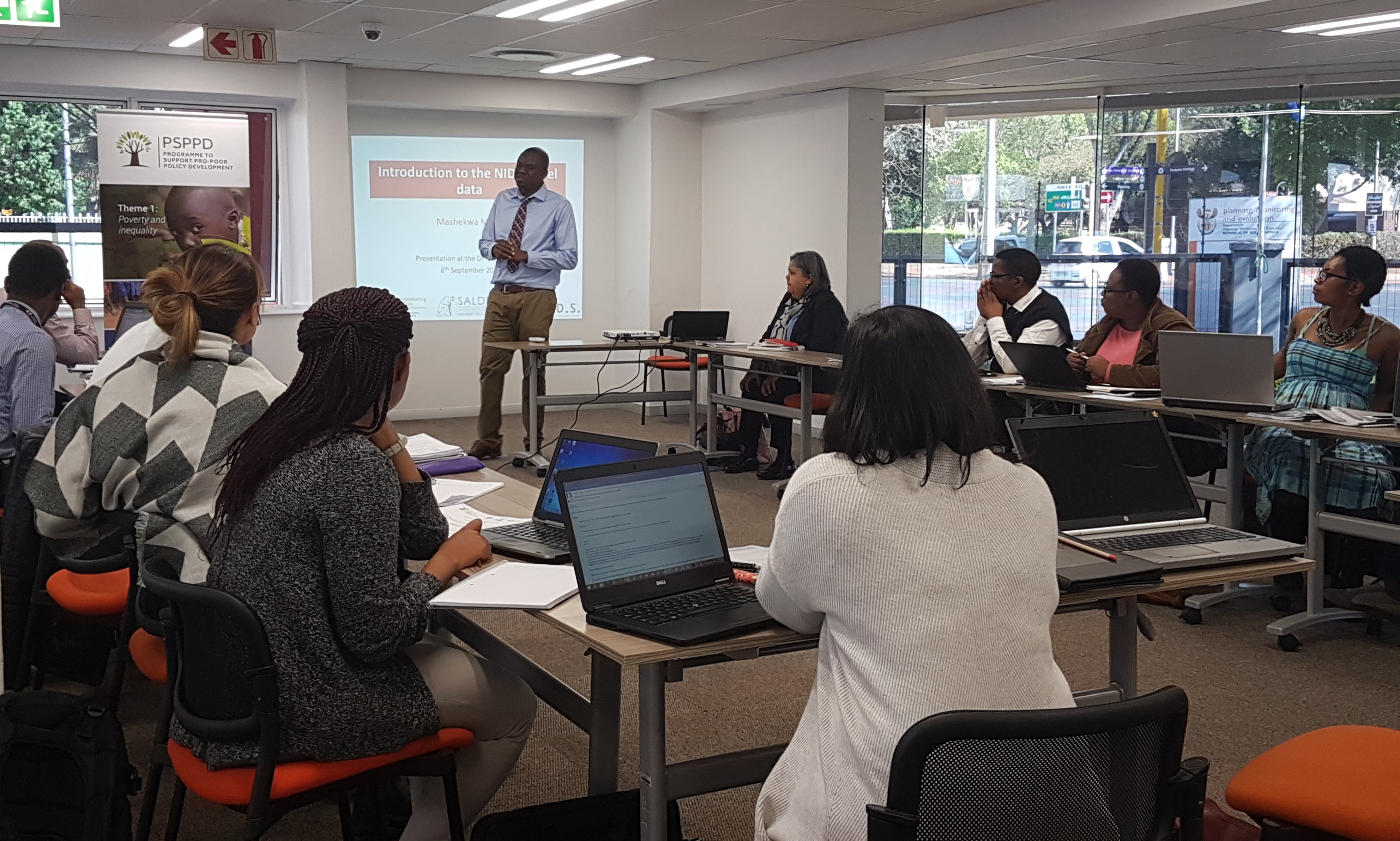
A special 3-day Introduction to the NIDS Panel Data Course was held at the DPME offices in Hatfield from 6 to 8 September 2017. Given that NIDS is an initiative of the DPME, the aim of the course was to build a base of Stata users within the DPME with the skills to descriptively analyse the NIDS data. Topics covered during the course included an introduction to the design of the NIDS survey; the content of the NIDS questionnaires; an introduction to Stata data management and key descriptive commands in Stata; as well as how to examine transitions over time.
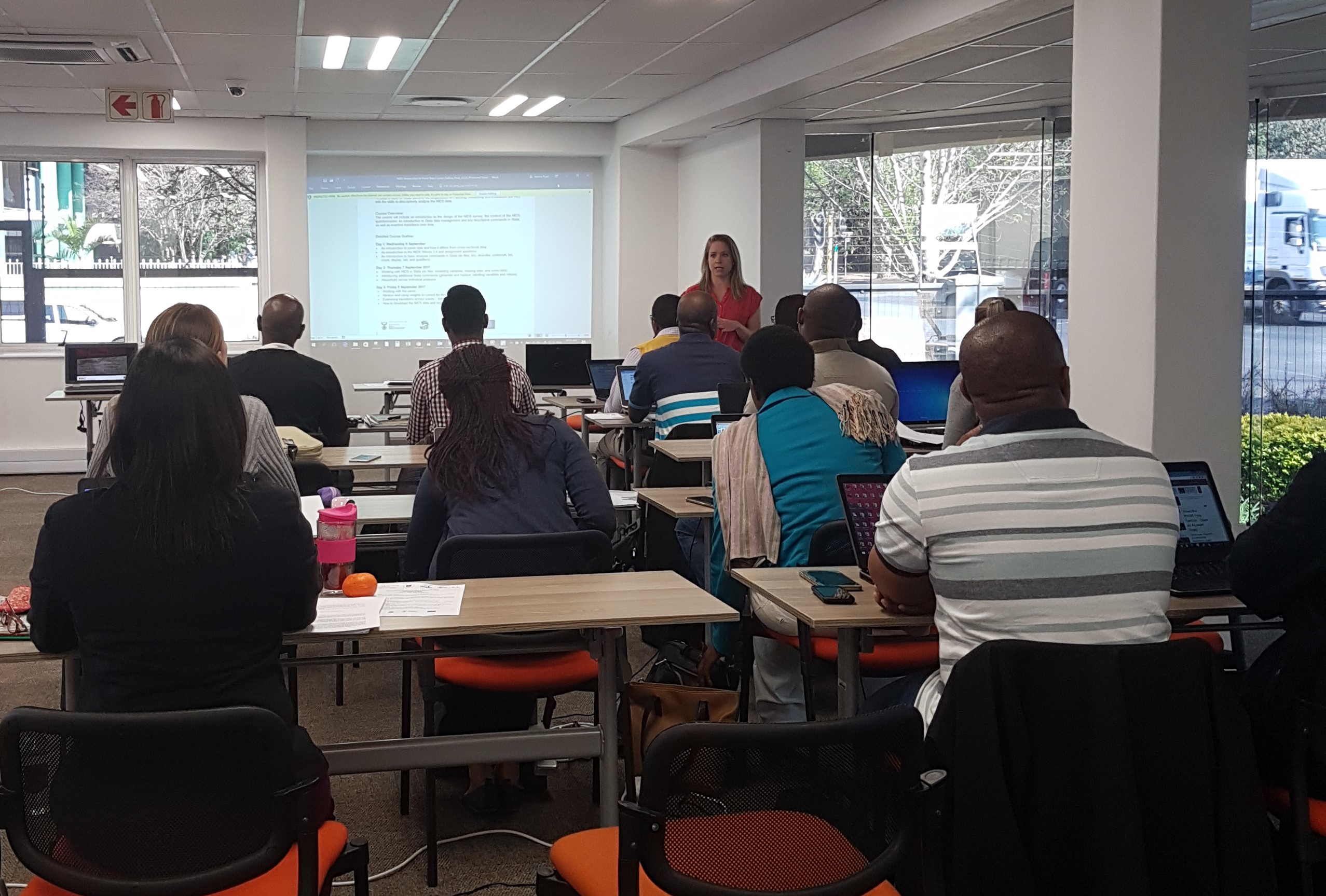
The DPME attendees reported that the skills that they acquired from the course would be useful for their future analytical work; mentioning the usefulness of these skills for developing research reports and policy reviews; responding to policy questions; as well as interrogating whether policy implementation is having an impact on the lives of ordinary South Africans.
Team NIDS from SALDRU, UCT Represented at the 2017 Blisters for Bread Charity Fun Walk
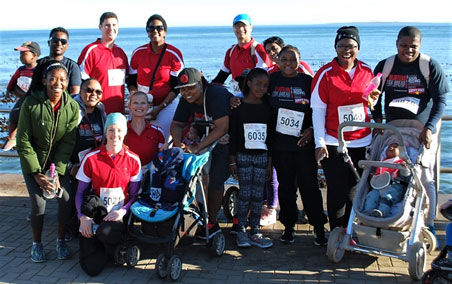
On Sunday 27 August 2017, members of the NIDS operations team from SALDRU, within UCT’s School of Economics, and their families (including babies in prams in tow), supported the Blisters for Bread Charity Fun Walk. The Charity Fun Walk, which had a 5km and a 10km route, started and ended at the Green Point Cricket Club, and meandered along the Sea Point Promenade. Whilst it was an early and chilly start to the day, the beginnings of Cape Town spring brought clear sunny skies. A fun-filled day was had by all, not forgetting the important cause – fighting the battle against hunger in schools.
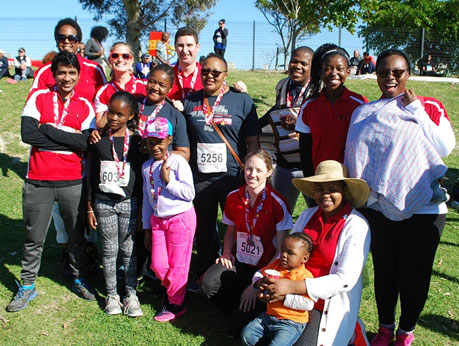
Blisters for Bread is an annual fundraising event for the Peninsula School Feeding Association (PSFA) which is a non-profit organisation that aims to address hunger in school attending children.
NIDS Represented at the 2017 Roundtable on Innovations in Household Panel Studies: Challenges and Opportunities

NIDS had the privilege of being invited to and attending, the roundtable on “Innovations in Household Panel Studies: Challenges and Opportunities” that followed the “Understanding Society Scientific Conference 2017”, which took place from 11-13 July at the University of Essex in the United Kingdom. The roundtable was a small session, which hosted senior staff from some of the world’s longest-standing panel studies. The aim of the roundtable was for the panel studies present to discuss some of the challenges they encounter in the implementation of their respective panel surveys as well as possible approaches to addressing them.
Represented by Mike Brown, NIDS was given the opportunity to present on some survey implementation challenges in a third-world context, most especially the challenges associated with maintaining high-income households in the study. During its 5th cycle of data collection, NIDS encountered significant challenges with recruiting newly selected high-income households, predominately from wealthy areas, into the study. As such, NIDS had to use a myriad of awareness and marketing campaigns in an attempt to successfully recruit these households into the panel.
Delegates expressed similar challenges with high-income households in their respective contexts, whilst not to the same extent as NIDS, as well as with respondents’ increased suspicion of government, although in the case of the US, this is appearing to manifest itself within lower income households rather than higher income households.
A useful takeaway for NIDS was the candid discussions that were had on the possibilities of introducing online self-completion of questionnaires, and the respondent incentivisation strategies that could possibly accompany this methodology and work within a South African context.
NIDS Hosts 3-day Panel Data Course
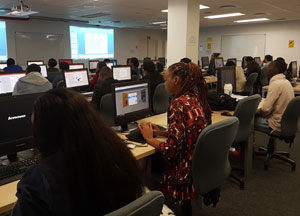
NIDS hosted a 3-day Panel Data Course from 3 - 5 December 2018 at UCT’s School of Economics. The course provided an introduction to analysing the NIDS Wave 1-5 data using Stata. More specifically, the techniques used in the analysis of longitudinal household survey data (i.e. panel data) were explored. Accordingly, some of the topics covered over the 3 days included panel data structure; transitions over time; weighting and differential attrition. The course was designed for people with prior experience using Stata to analyse cross-sectional household survey data. According to many of the attendees, the skills that they developed during the course will prove useful for their future research endeavours.
Please subscribe to the NIDS course mailing list if you would like to be notified of when other NIDS courses, become open.







 NIDS holds workshops with government departments and universities or anyone interested in learning more about the NIDS data. These workshops primarily aim to inspire further use of NIDS and share findings from NIDS.
NIDS holds workshops with government departments and universities or anyone interested in learning more about the NIDS data. These workshops primarily aim to inspire further use of NIDS and share findings from NIDS.